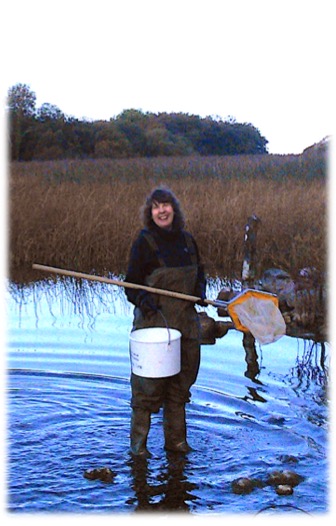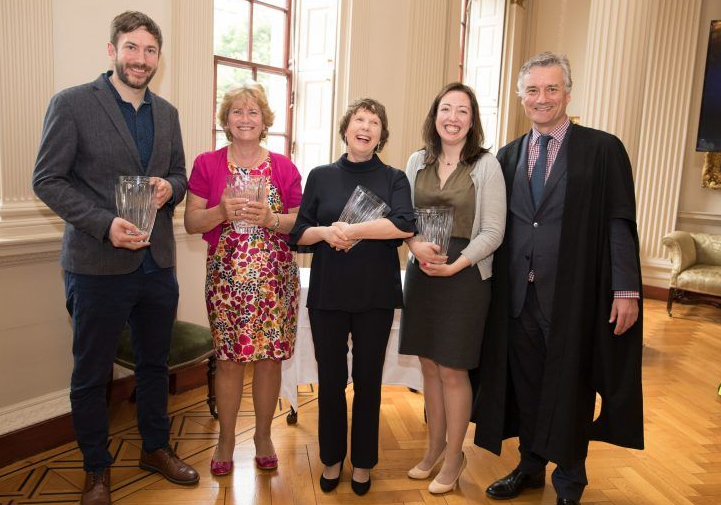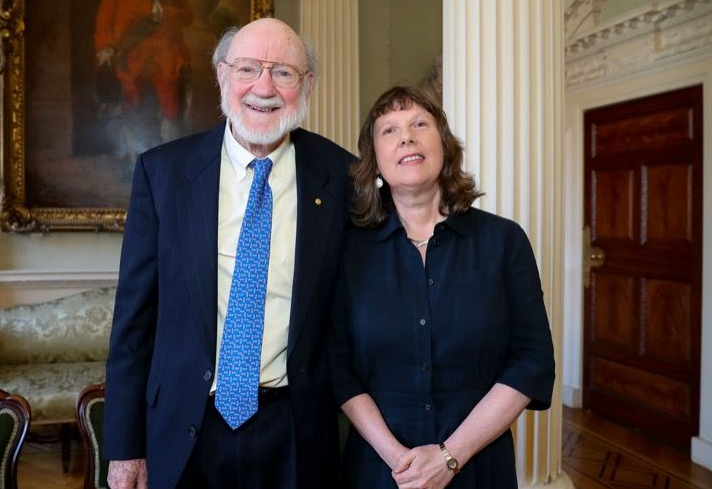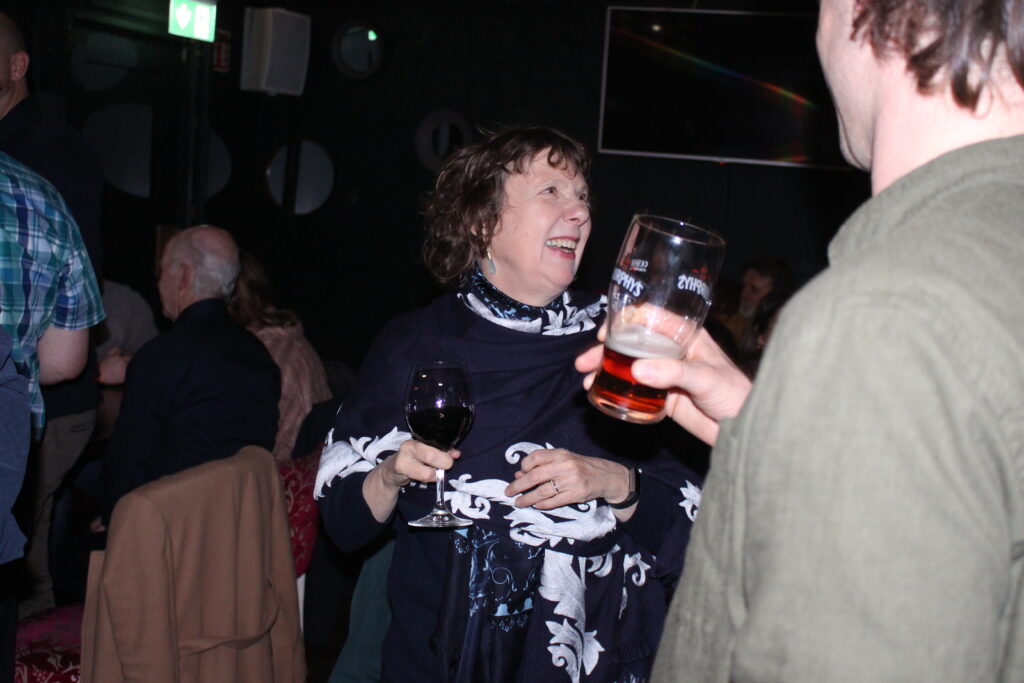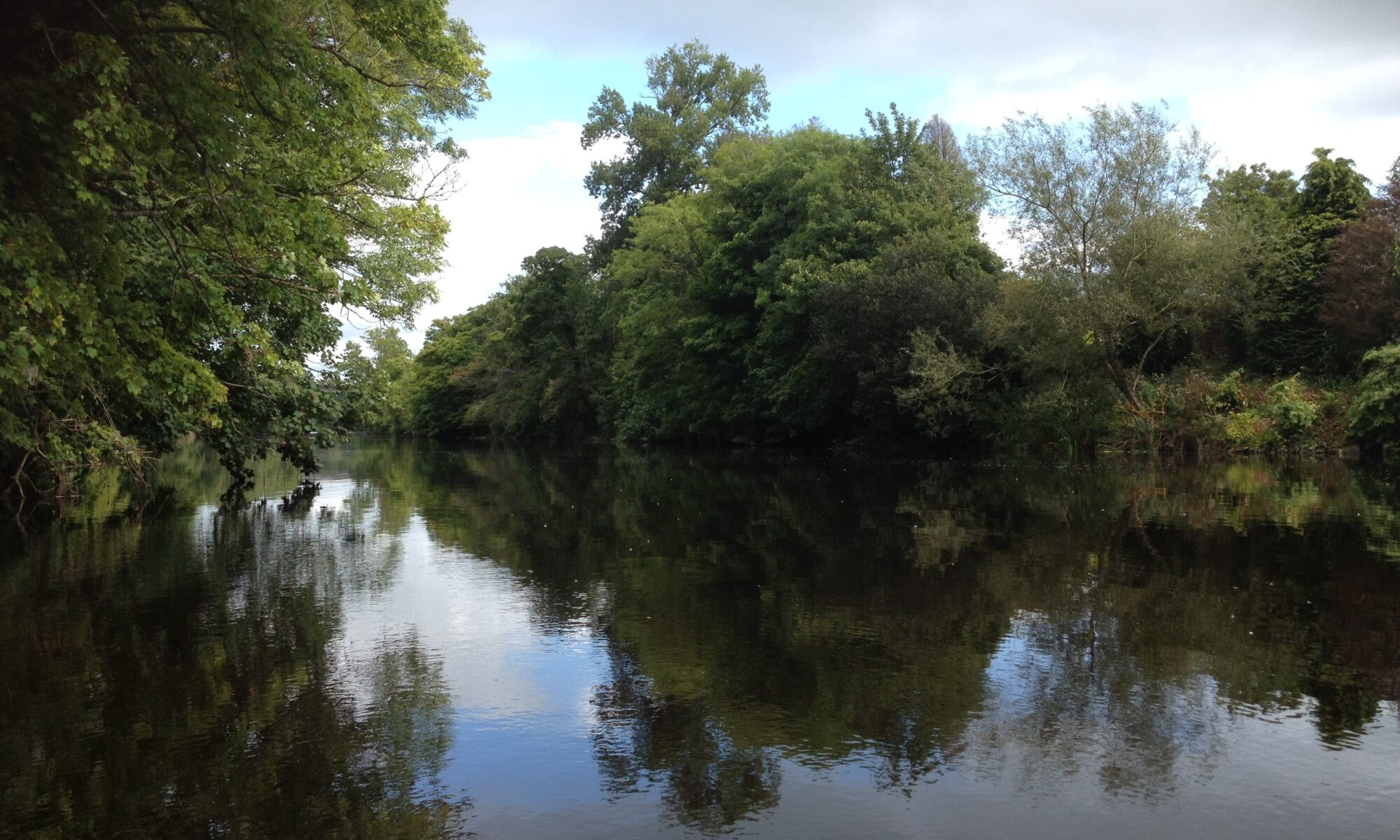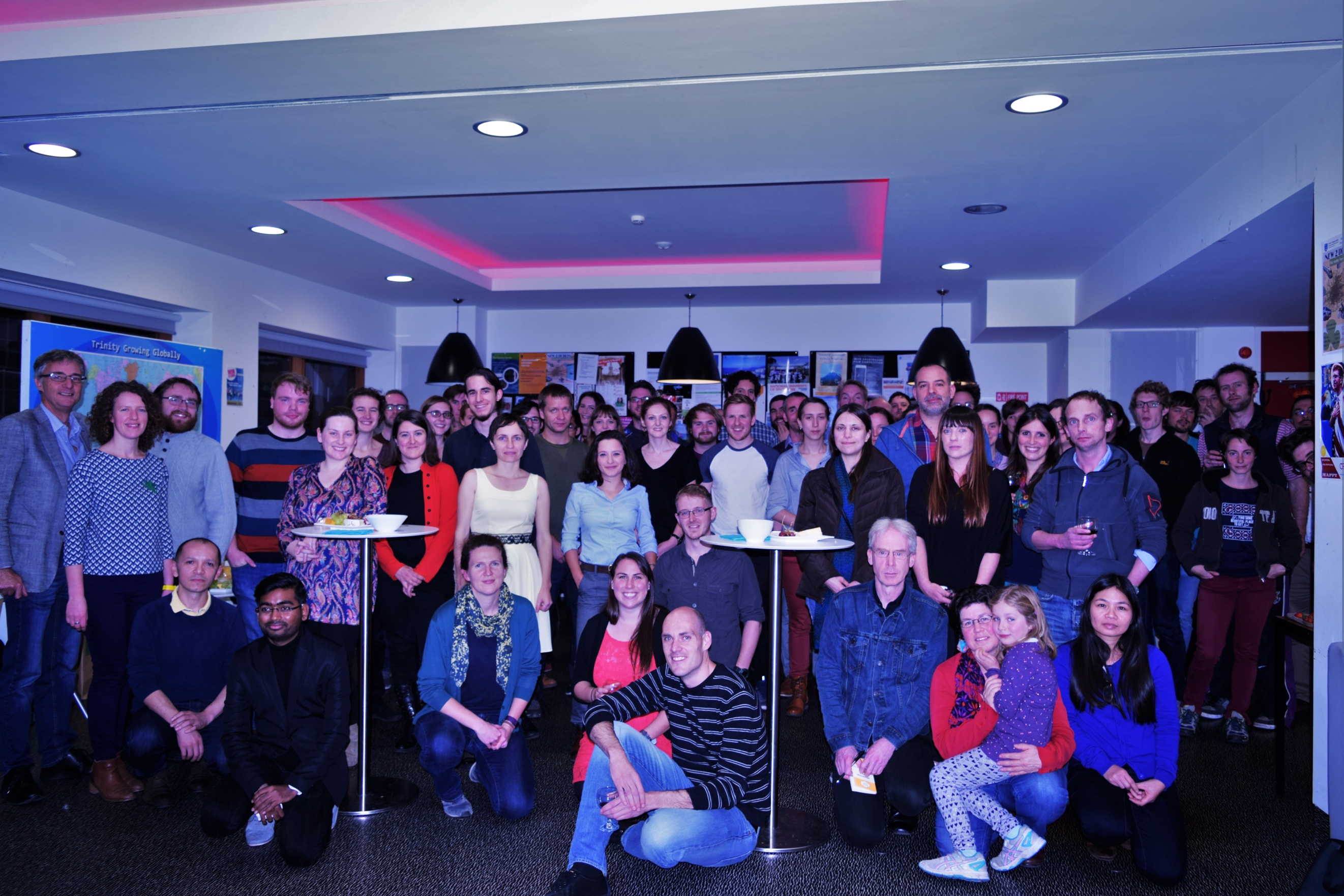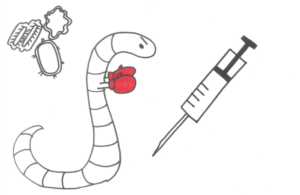It’s been three years since we’ve had transition year students pass through the door of the Zoology building to take part in a week long work experience programme. A huge thank you to everyone who made this possible and to Prof. Nicola Marples for organising another successful ‘Zoology TY Week’.
The Zoology TY Week is dedicated to exposing transition year students from around Ireland to what it is like to study Zoology in Trinity College Dublin, and to show them the opportunities that come with it. This year we had almost 100 applications, that was whittled down to 24 students, who were then invited to attend the course. The winners got to experience life as an undergraduate zoology student, attending lectures, researching in the lab, conducting fieldwork, having discussions, siting and chatting with new friends over coffee and meeting the cohort who work in Zoology everyday.
And importantly, applications for next year’s TY week are open now until 1st December 2023!
This year, we asked the students to write about their experience of zoology. The following blog consists of paragraphs written by the Zoology TY class of 2023, reflecting on their last day as a zoologist.
“I really enjoyed my time here and the opportunity to be able to participate in this course, meeting others with the same interests as me and meeting the zoology department team. My view on zoology since before I started this course has definitely changed. I wasn’t expecting this course to have such a vast variety of topics to possibly specify if you were to take this course. I learnt that zoology covers nearly all living organisms, right down to bacteria and parasites, and up to big blue whales.“
by Sean Keating
“I have really enjoyed my TY zoology week, I wish it would never end. I learned so much from all the lovely people here and they are all much friendlier than I expected…although I don’t know what I expected. During the week I learned about cells, parasites, how animals work and much more. We did experiments in the science labs which I loved because it was very hands-on and we got to do more than just theory classes.
In my opinion one of the most helpful things was speaking to people who have just finished their degree or are almost finished. They spoke about where they have travelled to, the pros and cons of this course path and what they do as a career from studying zoology. This got me thinking about what career I would like to do after college too.
If you are thinking of doing the TY zoology programme next year I would definitely recommend it as it’s more beneficial than I thought it would be. If you have an interest in ecology, the natural world or animals in the wild etc.. then this is perfect and very ideal for you. I’m walking away from this course with lots of information that I didn’t have before and I’m delighted I did it.”
by Caoimhe Dunne
“My experience in the TCD Zoology TY course has been one of the best things I have done in recent years. I learned so much during the week from fascinating owl pellets to intriguing parasites. It was a truly magical experience and has given me a great view into what it is like to be a zoologist. This course is a must do for anyone who has an interest in zoology. You learn so many intriguing things, I for one never knew the amount of little critters living in the rivers – fascinating! As I reflect upon the week, there was not a moment where I was bored. Everything we did was fascinating, fun and taught by such kind and caring Zoologists. If you have an interest in zoology this is the course for you and I would highly recommend it.”
by Charlie Maher
“I loved my week in the zoology department at Trinity. I loved all the practical work and the experiments we got to do – in and outside the classroom. I never knew there was so much diversity in the types of jobs you can do in zoology, but I learnt about things like parasites to extinct birds to how sharks are monitored and tagged. It’s not just sitting in a classroom learning about different animals. We got to learn about genetics, how PhDs work, the different opportunities zoology can give you and we got to even pull parasites out of fish! When I signed up for this week, I didn’t think I’d actually enjoy zoology to the level I did and I’m now wondering if I should try to do it after school. There’s so many things you can do and places you can travel to by doing zoology. Due to this week, I’m extremely interested in sharks and marine life, and want to know more about what I could do with that after school.”
by Katie McBride
“Overall I really enjoyed this zoology work experience. Zoology is one of my favourite areas of science and I’m so glad I got a chance to experience what it would be like to study this subject in Trinity. I liked how we got to talk to some students, asking them questions to learn more about zoology and how we got experience working in a lab. On the first day we were told the story of the elephant skeleton in the Zoological Museum called “Prince Tom.” The story stuck with me because it was incredibly sad how the elephant was mistreated. We learned how he was forced to carry people on his back when his ribs were damaged, and when he started acting strangely due to the pain he was tied up and kept away from the public in case he tried to hurt someone.
What interested me most about zoology is that you get to travel around the world for fieldwork and get to see animals in person in their natural habitat, rather than just hear about them in lectures. I really like travelling and this is definitely something I would like to do, especially since most of my favourite animals are not found in the wild in Ireland.
I think this experience has made me excited to go to university as I will get to study a topic of my choice rather than studying everything like in secondary school.”
by Elia Ross
“After spending a week in the zoology department of Trinity College, I have learnt so many new things. One of which being exactly what a course and career in Zoology entails. We heard about this from many different people from the undergrads, to the PhD students to the faculty members. We also got to experience first hand what it’s like being a zoology student through lots of field work. One morning, we went to the Dodder river and learnt how to take samples of insects within the river. Afterwards, we brought the samples back to the lab and looked at them under a microscope, to determine what species they were. We learnt that you could tell a lot about the cleanliness of a river by looking at what insects inhabit it. Zoology is a very broad subject and during the week we learnt about everything from mammals, to parasites, to birds and to even skeletons and bones.”
by Emilie Duffy
“When I applied for this program I didn’t think my perspective of zoology would differ. I do love science, but I’ve never really had an interest in zoology, but I just thought “why not”. Ever since taking part in this program my opinion has changed immensely. There’s so much more to zoology than I thought. We took an interactive museum tour and we learnt about different animals, extinct and existing. I’d never heard about the auk bird and learning about its extinction was very interesting. We also had the privilege to hear from undergraduate and postgraduate zoology students. It was very helpful to hear about their journey and the process of studying a science subject at Trinity. My favourite modules were Pepijn’s Parasites and Teeny Tiny Organisms. I knew what parasites were but I learned about how they spread and the way they control their victims’ brains. We got to look at different kinds of parasites in real life and we dissected a worm parasite out of a small fish. It was quite disgusting but very intriguing. For Teeny Tiny Organisms we collected different small organisms from the river and when we brought them back, we examined them through microscopes and identified them. I felt like a real Trinity student! I also learnt other things I didn’t know, for example, how different coloured foods affect bird’s eating habits and how shark data is collected by marine biologists. Overall participating in this programme really changed my view on zoology and I feel more encouraged to apply to Trinity College in the future.”
by Naomi Abu
“The Zoology TY Week was an opportunity not to be missed. This week far exceeded my expectations in so many ways. We were exposed to many different areas of zoology, giving a well-rounded experience of what studying zoology would be like. We were exposed to a broad range of animals, for example, insects, mammals, birds, and parasites in a variety of experiments, both in the lab and in the field. The activity that I most enjoyed was the invertebrates of rivers. We took samples of invertebrates in the Dodder river to gauge how pure the water is in that river. We then took our samples back to the lab and identified them under a microscope. I found this very interesting as I had never seen any of the invertebrates up close before, and it’s certainly not an opportunity that would be available to me in school. I learned in this activity the importance of insects in our ecosystem and definitely have an increased appreciation for them now.”
by Arianna Petley
“One thing I really enjoyed about the Trinity TY zoology course was the bird race. I was amazed how many birds we were able to find in such a small area. That had been a common trend this week. I’ve been amazed by so many aspects of zoology. From the impressive museum and massive elephant to the equally massive laboratory and the gross parasites we saw living there. I’ve learned so much about zoology and science as a whole, and learned what life on campus can be like.”
by Derry Flanagan
“My favourite part of the first day was in the Zoological museum when we were told the story of the Great Auk. We also learned about ‘Prince Tom’ a royal elephant who had an incredible and diverse life. I had to try very hard to not say “Let’s talk about the elephant in the room”, but I managed to persevere .Day 3 was probably my favourite day. The first thing we did was learn about Mini-Mammals with John Rochford. That was my favourite part of the week. It was interesting to see how to trap the animals safely for testing and then to release them back into the wild. We also looked through owl pellets and looked for the bones of little animals. I found the skull of a mouse. We also went to St.Stephen’s Green and tested if seagulls would eat bread if it was a different colour. That was quite fun and we analysed the data later on. What I loved at this experience that was unrelated to zoology was the lunch breaks and tea breaks because I got to socialise with everyone and know my peers better. I would recommend this course to anyone even if you’re not too interested as there is a wide range of things to learn and you will enjoy most of it. All in all a great experience.”
by Euan Flanagan
“I came to the placement with one friend from my school, and within only a few minutes in the Zoology building I had made many more. The friendships that were fostered between others and myself were greatly encouraged by the games and activities that we do, not only on the first day but in the week throughout. As someone who came into TY not really knowing what I wish to do with myself, as I would probably guess most people to be – the sheer scope of Zoology as a whole made it extremely interesting, even if you’re not particularly interested in Science or Geography. For example, History is probably my favourite subject in school and I wasn’t really expecting this week to have much to do with history, but the Zoology Museum viewing with Professor Linnie and the general evolutionary studies that we carried out also brought what I believed to be my main interests to the fold. It’s an extremely hands-on experience, so if you like wading through rivers or cutting up fish I think you should consider! The miny mammals class with Professor Rochford was completely new and was a subject that greatly made me want to look into zoology as a career after school. He showed us the different traps used in field studies to allow Zoologists to study the environment and ecology of a specific area and also explained to us how his students are granted the opportunity to work all over the world in places like Canada and New Zealand, working with species that most of us have only seen in the wild on our TVs. This practical element of Zoology began a genuine interest to pursue doing something similar.”
by James Meehan
“I’ve really enjoyed experiencing what it is like to learn like an undergraduate student of zoology. My favourite part of the week was when we collected freshwater invertebrate samples from the river. We put on wellies and used nets and buckets to collect samples from the river. I liked being out in nature and experiencing everything that we had spoken about the day before. We then took these samples back to the lab and studied them under the microscope. It made me feel like a proper scientist, since we were wearing lab coats and latex gloves. The whole week was just a great experience, and I hope next year’s TYs enjoy it as much as I did.”
by Elisa Terry
“As someone who has always been fascinated by the animals and ecosystem of the natural world, this past week at the zoology week at TCD has been such an eye opening experience. We covered many different topics and carried out experiments that definitely deepened my knowledge of the workings of animals. We even got the opportunity to extract real parasites like liver fluke from fish through dissection. Identifying invertebrates under a microscope was one of my favourite activities of the week, as we got to collect them from the Dodder. It made me realise how little I knew about my local rivers and insects. Having the professors there to answer our questions, help us understand and share their experiences on the different topics has only deepened my interest and passion for zoology.”
by Éadaoin Cullen
Thank you again to everyone involved in this year’s Transition Year Zoology Experience. It was greatly appreciated by the students, as you can see from the above excerpts. If you would like to be a part of next year’s TY week applications are open until the 1st December 2023!

